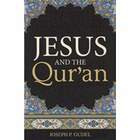Paolo Chikiamco, publisher of Rocket Kapre Books (@rocketkapre), writes on Digital Book World (@DigiBookWorld) about the roles of "big" vs. independent publishers in this new digital age. He says, "publishers need to be adaptable in order to survive; in order to thrive, they need to be willing to experiment. Many of the experiments they take when they test the waters will result in failure, but as Independent Publishers have less to lose and more to gain, they will be that much more innovative." Here are excerpts:
In the New World of Publishing, the Internet, ebook readers and print-on-demand outlets give authors the ability to distribute their work internationally, on a scale unthinkable even to Big Publishing (BTI), and at a fraction of the cost. Having spent so long at the bottom of the barrel, self-published authors have nowhere to go but up, and hence the New World is nothing but opportunity. In fact, in an era of social networks and blogs (and just recently, plugins like Anthologize which can turn a Wordpress blog into a functional and ready-to-sell ebook) where it can be said that we are all publishers, some wonder if third-party publishers are needed at all.
If all that one wants is to make a book, as a text, available to the world, then the answer is no, you don’t need a publisher. On the other hand, if the goal is to make a book as a commercial product, one that is visible and viable, then – unless you’re an established author or are willing to put a lot of work into the book above and beyond actually writing it – yes, you still need a publisher.
But in the New World, the Big Publisher is not your only option – nor is it necessarily your best option. In a publishing world dominated by the two extremes, the most “virtuous” means to get your book to the market may be through an entity which can combine the strengths of Big Publishing and Self-Publishing, and in so doing (because the strengths of one are the weaknesses of the other) minimize their weaknesses. The best option could be an Independent Publisher and small presses: entities with more resources and business savvy than your typical author, but which retain a flexibility and personal touch absent from bigger publishers.
...This is how an Independent Publisher can succeed in the New Era of digital and immediate content: by serving as a bridge between the author and the readers, adding value – in-house or through strategic partnerships – to the work that passes its hands, and ensuring that nothing gets in the way of a good story.
 Hugh McGuire (
Hugh McGuire ( Because of the
Because of the 
 Michael Hyatt (
Michael Hyatt (